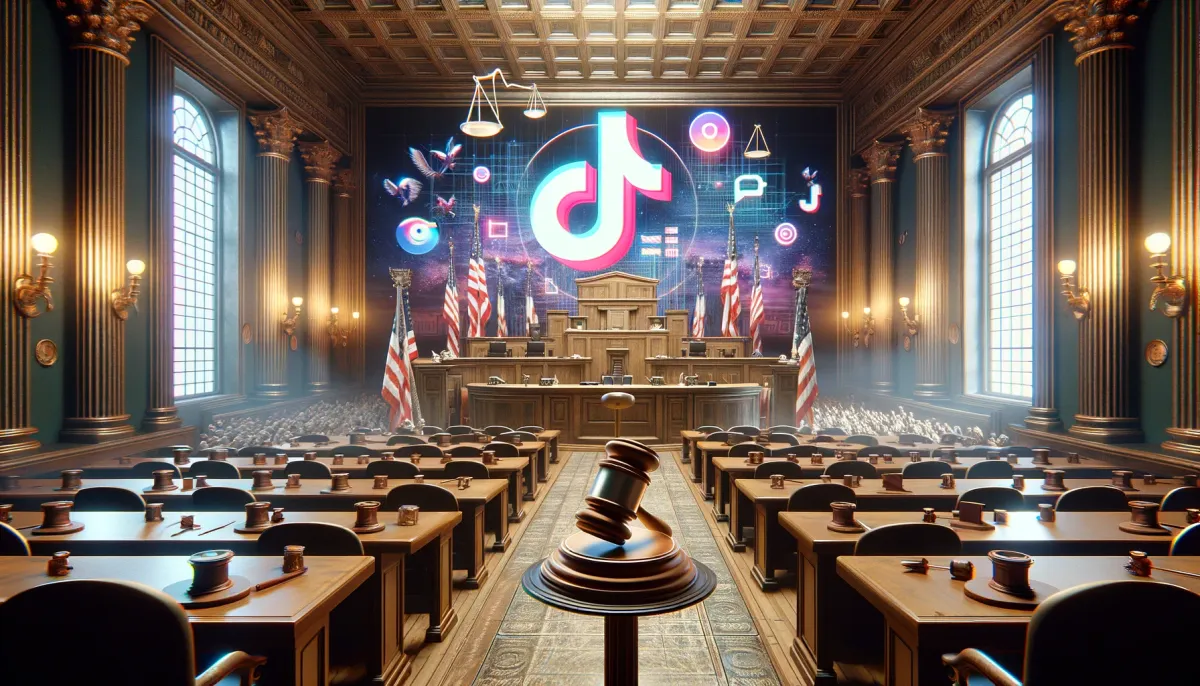TikTok sues to block prospective US app ban
TikTok has filed a lawsuit to challenge a US law that could ban the popular app, citing First Amendment rights and concerns about the government's evidence against it.

TikTok has filed a lawsuit to challenge a US law that could ban the popular app, citing First Amendment rights and concerns about the government's evidence against it. This legal battle could have major implications for how foreign technology is regulated in the United States.
TikTok Fights Against US App Ban
TikTok, the popular short-form video app, has taken legal action to block a US law that could potentially force a nationwide ban of the app. The move comes after President Joe Biden signed the legislation last month, prompting TikTok to follow through on its previous legal threats.
First Amendment Rights at Stake
The court challenge sets the stage for a historic legal battle that will determine whether US security concerns about TikTok's Chinese ties can override the First Amendment rights of the app's 170 million US users. The outcome of this case could have major implications for the future of foreign technology regulation in the United States.
The Stakes for TikTok
The stakes are high for TikTok in this legal battle. If the app loses, it could be banned from US app stores unless its Chinese parent company, ByteDance, sells it to a non-Chinese entity by mid-January 2025. This would effectively shut down the app in the United States and disrupt the community of over 1 billion users worldwide.
Unconstitutional Law
In its petition filed at the US Court of Appeals for the District of Columbia Circuit, TikTok and ByteDance argue that the law is unconstitutional because it violates Americans' right to free speech and access to lawful information. They claim that the US government has unfairly singled out and banned TikTok without due process.
Security Concerns and Lack of Evidence
The lawsuit follows years of US allegations that TikTok's ties to China could potentially expose Americans' personal information to the Chinese government. However, TikTok has vehemently denied these claims and has taken steps to protect user data by hosting it on servers owned by US tech giant Oracle. Despite these efforts, US officials continue to express concerns that China could use TikTok's data for nefarious purposes. However, to date, no concrete evidence has been presented to support these claims. Lawmakers have received classified briefings on the matter, but these have not been made public.
Implications for Tech Regulation
The TikTok lawsuit raises questions about the government's power to regulate technology and foreign speech. The bipartisan support for the law, as well as the restrictions placed on TikTok by the US government and other countries, highlights the potential impact this case could have on future regulations.
Challenges for App Stores
The law also raises concerns about the potential infringement of the constitutional rights of Apple and Google, whose app stores would be prohibited from carrying TikTok if a ban is upheld. This could set a dangerous precedent for government intervention in the online space.
Future Implications
The outcome of this case could have far-reaching consequences for how the US government regulates technology and foreign speech. It could also set a precedent for future actions against foreign platforms. First Amendment scholars warn that national security concerns should not trump free speech, and the government must provide evidence to support its claims.
A Critical Moment for Tech Regulation
This legal battle between TikTok and the US government is a critical moment for the regulation of technology and foreign speech. As the world becomes increasingly globalized, these issues will continue to arise, and the outcome of this case could set a precedent for future actions. The court's decision will have a significant impact on the future of TikTok, as well as the broader implications for how technology and foreign speech are regulated in the United States.




